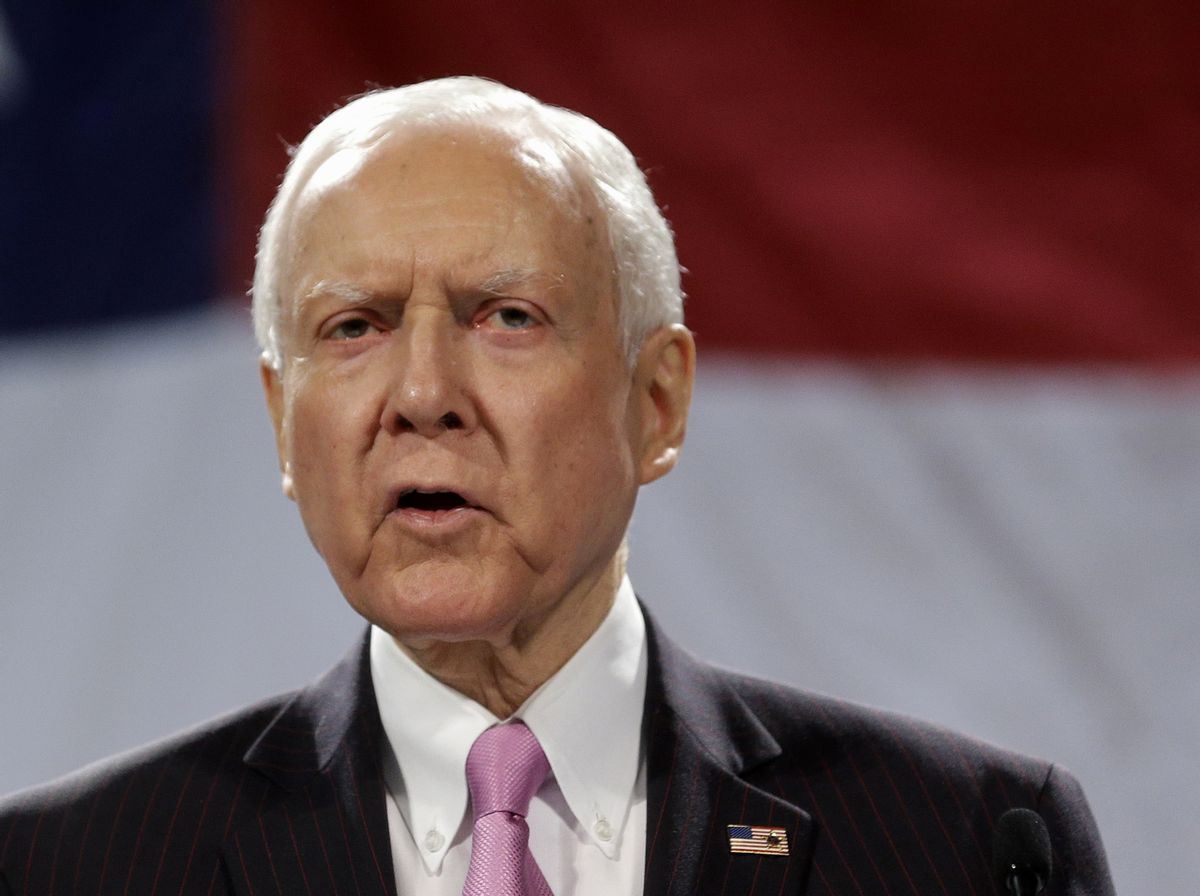As predicted, the Republicans in Congress are settling on a strategy of unyielding obstruction at the very idea of Barack Obama nominating a successor to Supreme Court Justice Antonin Scalia. They’re in a tough spot politically no matter what they do, as Greg Sargent notes, but the better play for them has always been to deny Obama’s pick – whomever it is – even a moment’s consideration as a legitimate nominee. That means no votes, no hearings and no Senate action whatsoever.
They want to keep the focus on Obama and stick to the idea that there can’t be a credible nominating process during an election year, but that argument will be impossible to maintain if they go through the motions of the normal nominating process. CNN reported Wednesday night that Republican leaders recognize as much and are pushing to shut it down entirely:
If Republicans held confirmation proceedings, several Republicans told CNN, that argument would be badly muddied. Moreover, they risk giving Obama's choice an opportunity to detail his or her life story and legal qualifications, and they'd rather stop the nominee before giving the White House and Senate Democrats a chance to build momentum.
"There's little upside to it," said one senior GOP source who asked for anonymity to discuss party strategy.
It’s the smarter thing to do, but it’s still an extremely difficult position to maintain. And the arguments the Republicans are deploying to defend this stance are comically weak. Sen. Orrin Hatch, who sits on the Senate Judiciary Committee, spoke to PBS’s Judy Woodruff on Wednesday night and did his best to make the case that the Senate shouldn’t take action on an Obama nominee. He was less than convincing.
Here’s what Hatch had to say:
HATCH: And so I do support Sen. McConnell in saying, but, look, let’s get it out of this terrible presidential brouhaha that is going on, and let’s get it over to the next year, and be fair to both sides, because what would happen is whoever wins the presidency is going to be able to make this nomination.
I’m not sure what “fair to both sides” is supposed to mean. How is a Supreme Court nomination an issue of “fairness” among partisan entities? Obama won the last presidential election, which gives him the right and obligation to nominate Supreme Court justices. Period. That’s it. The next president will be similarly empowered by the Constitution. And it’s not like Obama’s successor is going to prioritize “fairness” in picking a nominee – they’re going to choose people they believe are qualified and are broadly aligned with their own governing ideologies.
HATCH: Usually, you never nominate anyone during the last year of a president. And the reason for that is because — well, there are many reasons, but one reason is because there’s always a very contested Senate primaries and also election, and, secondly, generally, one side or the other is going to get very, very upset about it.
This is nonsense. People are going to be “very, very upset” with a Supreme Court nominee regardless of when it happens. The stakes of this particular court fight are so high that it will be impossible to divorce political passion from the nomination, irrespective of who actually makes it. If Marco Rubio wins the election, is Hatch going to caution against replacing Scalia because Rubio’s pick will be “unfair” and make Democrats upset? Of course not.
HATCH: Well, I’m saying the Republicans shouldn’t act on it, because the proper way is to get this done in a way that cools the whole process around electing judges, and in particular justices to the United States Supreme Court.
I just don’t want the court politicized. And this would be the biggest politicization the court in history. And that is saying something, because there have been some other times that certainly would come close to matching this.
But, in all honesty, I just don’t want to see the court denigrated any further than it would be in this very caustic election year with the way things are going right now.
Here he’s just talking in circles and contradicting himself. He doesn’t want the court politicized, even though it’s already very highly politicized. And as Steve Benen points out, Hatch’s plan to avoid “politicizing” the Supreme Court nomination is to have the nomination itself become a flashpoint in a political process that he describes as uniquely caustic. He’s not making any sense here.
This is the best the Republicans have come up with so far to justify sitting on their hands and not allowing an Obama nominee to get his or her foot in the door. It’s weak and it’s lame and strains credulity beyond the breaking point, but it’s the best option they have, so they’re running with it.

Shares